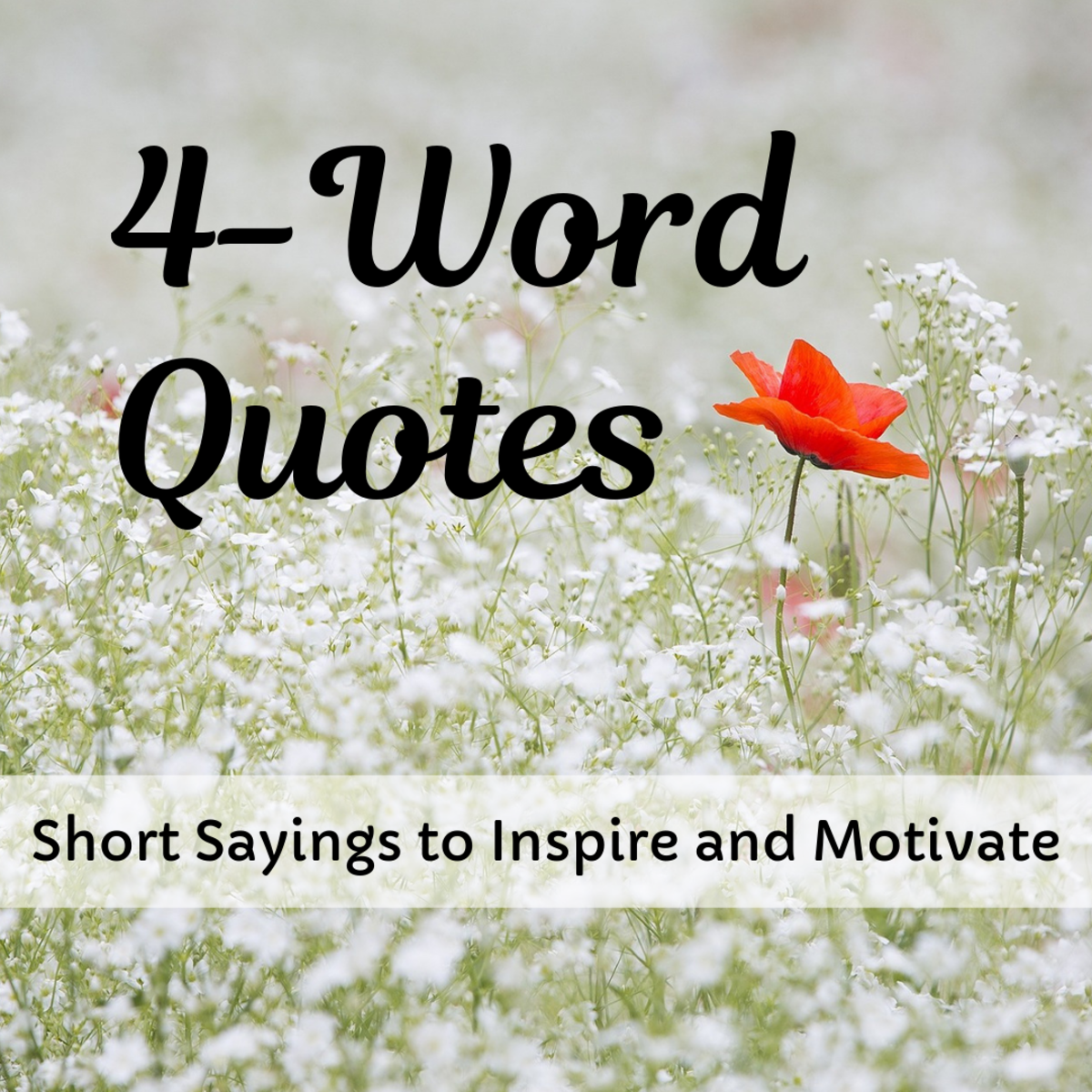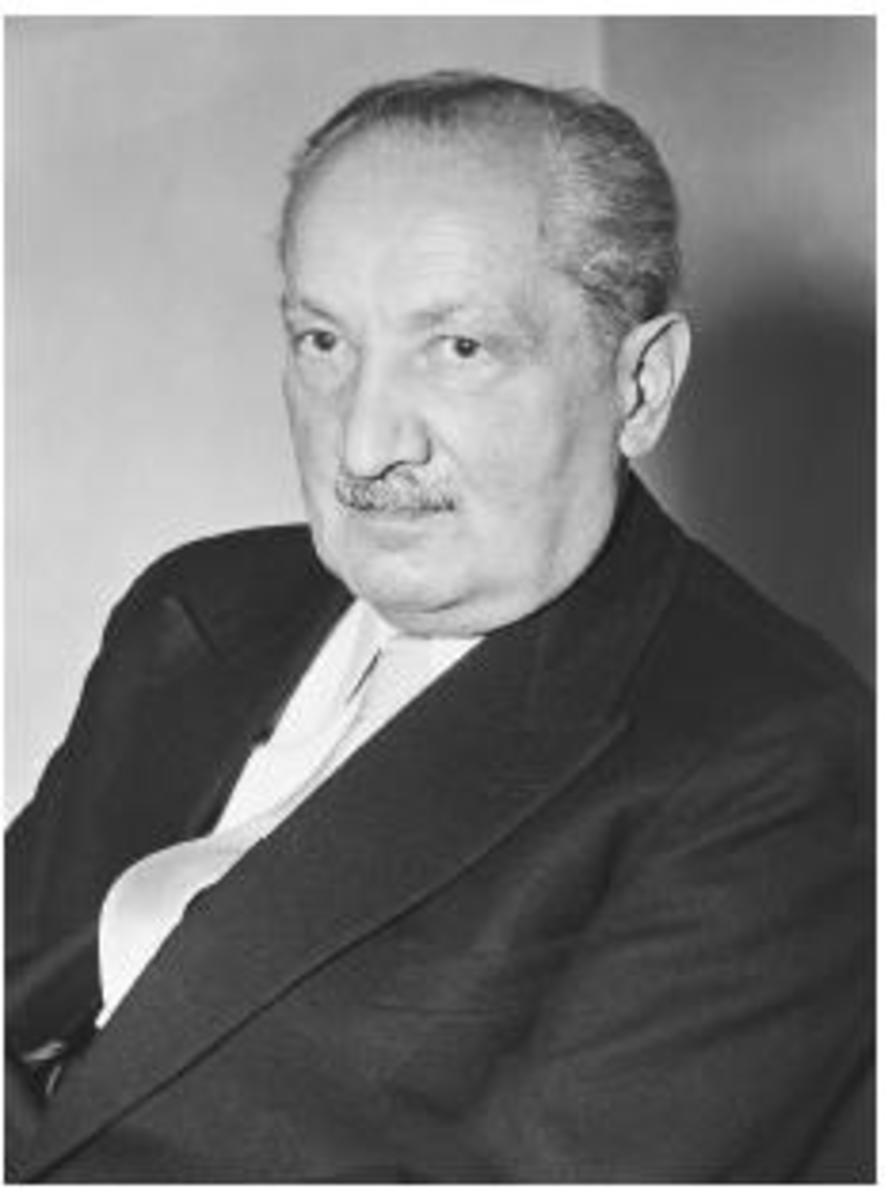Saying "I Love You" or "Thank You" is Nothing to Feel Sorry About




This article is a response to the question: "Why do people find it so hard to say wonderful things like 'Sorry', 'I Love You' or 'Thank You'?" asked by fellow Hubber, aravindb1982
Generally speaking, over the last century social interactions have become less formal and as a result, some courtesies of verbal communication like, "I'm sorry," "I love you" and "Thank you" have declined in use. But other external factors have impeded our willingness to express ourselves emotionally in these ways as well. This article briefly explores some possibilities that may help explain and perhaps suggest possible remedies for what some see as the decline of civility in modern culture.
"I'm Sorry"
An apology is usually two things: an expression of regret and an admission of responsibility. In order to say, "I'm sorry," therefore, one must make (at least) two decisions.
When we hurt someone else, most of us have an inner voice we call a conscience that notifies us that we have done something wrong. We may feel a pang - a disturbing feeling that originates deep inside of us. However, more and more of us seem to be conditioned to ignore this voice and this feeling. Somehow blame falls upon the victim, or some other place it does not belong. If there is no acknowledgement of having hurt another person, there can be no regret and no apology. One must actively decide to listen to their conscience and to feel the unpleasant feeling of being in the wrong before they can say, “I’m sorry.”
When we are confronted with our own wrongness, our first response is often one of denial. It is tempting to be defensive - to deny we are at fault. Strength and courage are required of the individual who takes responsibility for their own mistakes or wrongful actions. Blaming someone else or feigning surprise and ignorance is much easier. In order to say "I'm sorry" we must first decide to own our mistake or wrongdoing.
In today's society the phrase, "I forgive you" is at least as rare as, "I'm sorry." We seem to be as reluctant to forgive as we are to take ownership of our own mistakes or misdeeds. Thinking that we will not be forgiven, we are reluctant to be honest when we are in the wrong. We are also reluctant to forgive ourselves. Reluctance to forgive the self effectively stops us from forgiving others.
I suggest two remedies for the absence of "I'm sorry." First, practice instant forgiveness of both yourself and others. Second, take ownership of the hurts you inflict on others without hesitation, whether you hurt them on purpose or by accident and say, "I'm sorry." In this way we will make our world a safe place to own our mistakes and make up for them as best we can.
Your heart will tell you when you should say you're sorry. Listen to it.
"I Love You"
The phrase "I love you" can mean many things. When we say "I love you" we often mean, "I want to be with you" or more accurately "I want you to be with me," or "You should care about me more" or "I am attracted to you physically." Sometimes it means, “I am committed to our relationship.” The problem with "I love you" seems to be the fluid nature of its meaning in different circumstances. This fluidity stems from the personal nature of the word, "love."
What is love, after all? Love is a feeling: an emotion. A web search for the definition of love yields “a feeling of deep affection” as the favored answer. Those who write definitions generally base them on usage; therefore, this is how most of us use the word, “love.” When we say “I love you” it generally means “I feel great affection for you.”
When “I love you” is said with the meaning, “I feel great affection for you,” and it is appropriate to feel this for the other person, the receiver of “I love you” will be glad. The most appropriate receivers of I love you are your spouse, your children, your siblings, your parents and your grandparents. It is good to let your loved ones know you love them. Knowing this makes them glad.
Yet there is a good deal more to the idea of love. For example, here is a list of the characteristics of love from the Christian Bible:
“Love is patient and kind;
Love is not jealous or boastful;
it is not arrogant or rude.
Love does not insist on its own way;
it is not irritable or resentful;
it does not rejoice at wrong, but rejoices in the right.
Love bears all things, believes all things,
hopes all things, endures all things.”
From this we could glean that love has properties described in Taoist literature as gentleness, humility, equanimity and innocence. To maintain these correct attitudes in daily life, one must be emotionally balanced. If love is all of these things, one must be emotionally balanced to be able to say, “I love you,” with purity of meaning.
However, I think it is rare in our civilizations that “I love you” is said without some additional meaning mixed in, such as “I’m sorry,” “I forgive you,” “I want you,” or “We have a relationship.” Still, love that is not quite pure is still love, and as a dear friend once told me, all love is good.
There is a saying that the more you love, the more love will return to you. The language of your heart is love.

"Thank You"
If you are lucky, after you say "I love you" to someone they will give you a reason to say "Thank you" and not a reason to say "I'm sorry."
Many times in life we seem to feel entitled to the daily acts of others that benefit us, and at other times we are busy in our own thoughts and simply miss what others are doing for us in the moment. Either way, we miss a moment of gratitude.
Gratitude is a powerful force that you can use to make life good for yourself, because the basis of gratitude is positive thinking, and there is very little in the physical existence that is more powerful than positive thinking.
Every moment in your life you can choose to be grateful. No matter what may be happening to you, as long as you are alive, it could be worse. As long as you would rather not be dead, you can be grateful for being alive. If you get a parking ticket you can be grateful your car was not towed. If you are caught in the rain you can be glad it’s not hail. And from this place of feeling that, ‘hey, things could be worse,’ you will soon discover that maybe you don’t have it so bad. You can be grateful for that.
After you practice for a while being grateful that the universe does not snuff out your paltry existence, you will probably find a wider range of targets for your gratitude: your fellow humans for example. So many people make your life better, easier or more interesting. There are the people that grow, process and/or package your food, people that build the things you like to use, people that work on everything from the power grid to graphics so that there can be an Internet that allows you to read my wonderful prose – millions of people who serve … you!
You can’t thank all of them personally, but you can thank the ones you see. You can thank the person who picks up your trash, the police officer who directs traffic where the traffic light is broken, the barista who gives you your coffee, the person who gives you work to do so you can make money, the cashier at the market who allows you to express appreciation in the form of money for convenient food, and the driver ahead of you who is there to make sure you don’t drive too fast.
Go ahead. Look them in the eye, smile and say, “Thank you.” Most of the time – not all the time, but most of the time – you’ll get a smile in return. How do you feel when someone with nothing to gain smiles at you? Probably you feel happy. So if you smile and say “Thank you” a lot, you will quickly find that you are a happier, more positive person most of the time.
Why will you be happier? Because your heart will be connecting with other hearts.
May you have just enough to be sorry for to prove that you took risks.
May your heart overflow with love for your fellow humans.
May you find things to be thankful for without end.








